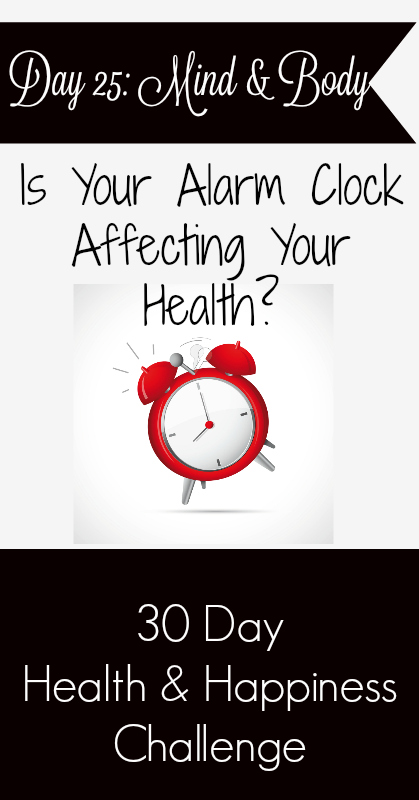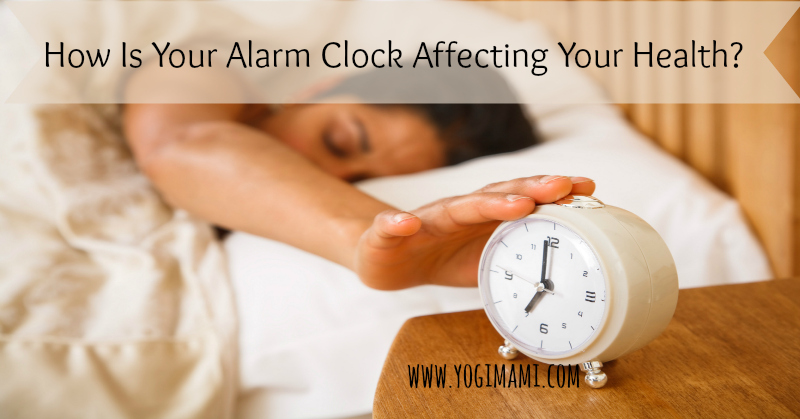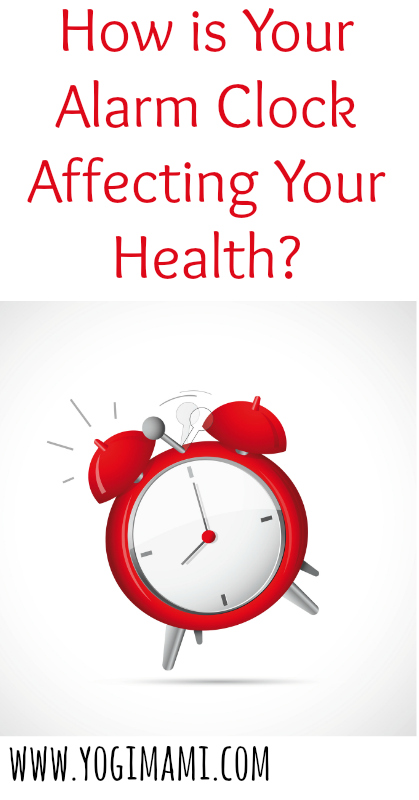PAID ENDORSEMENT DISCLOSURE: In order for me to support my blogging activities, I may receive monetary compensation or other types of remuneration for my endorsement, recommendation, testimonial and/or link to any products or services from this blog. However, I only recommend products or services I have personally used myself and trust.
Yogi Mami/Victoria Moore is a participant in the Amazon Services LLC Associates Program, an affiliate advertising program designed to provide a means for sites to earn advertising fees by advertising and linking to Amazon.com.
It’s hard not to hate alarm clocks. Those early morning beeps or loud music is a sign of intrusion, obligation and responsibility. Many people rely on alarm clocks as a way to start the day, usually relying on them as a way to wake up before their body would naturally. Could alarm clocks actually be doing more harm than good? This post will share information I found on how alarm clocks affect our health.
How Alarm Clocks Affect Sleep Patterns
The amount of sleep that each person requires can differ, but on average it is around 8 hours a night. Most people who extremely dependent on alarm clocks are those who don’t get adequate sleep. Sleep deprivation causes us to not feel ready when the alarm clock goes off, consequently hitting the snooze button a number of times.
Have you ever noticed how you feel drowsy and disoriented when your alarm goes off? As we sleep our body goes through different sleep stages and each stage is equally important for the repair and rejuvenation of the body. When the alarm clock goes off it has no idea what stage of sleep the body is in and shocks the nervous system causing to awaken. The act of suddenly being jolted awake quickly increase our blood pressure and heart rate from its non-physical state and triggers our “flight or fight response” which increases adrenal levels. Incurring this type of wake-up call every day can add to overall stress levels.
Train Your Body to Ditch the Alarm Clock
If you are interested in ditching your alarm clock it is important to develop a natural sleep schedule. Going to bed and waking up at the same time every day will allow your body to grow accustomed to waking up when it is supposed to. While you are regulating your sleep schedule set an alarm later than you normally would. When your body is getting adequate sleep you will gain the ability to wake up on your own naturally. After a couple weeks of sticking to a routine you should be able to phase out the alarm clock completely. Another helpful tip is to position the bed where sunlight can act as a natural wake-up trigger. If you must continue to use an alarm clock try one with softer more relaxing options to wake up without stress. (Where to buy)




